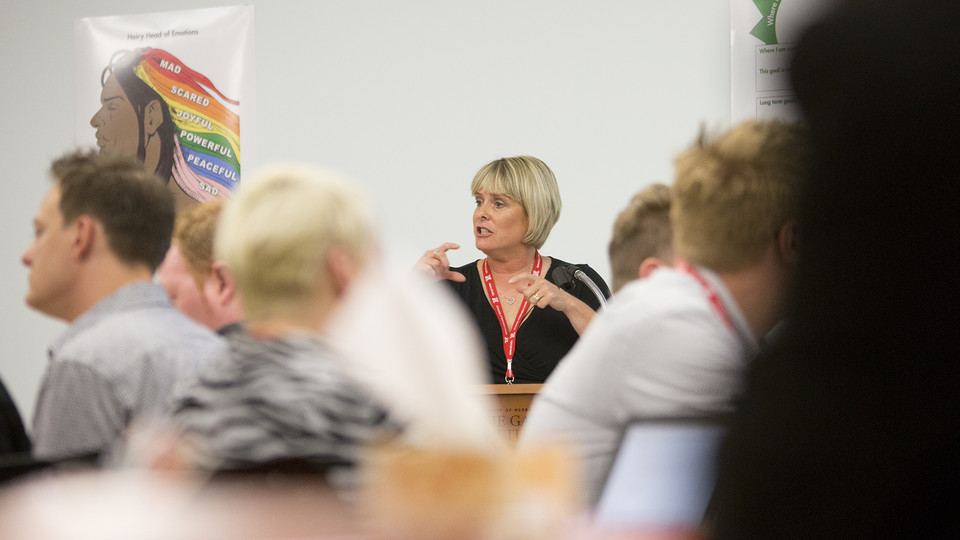
Swearer: Social media not best avenue to deal with bullying
14 Dec 2017 By Troy Fedderson | University Communication
A Nebraska-based national expert on the topic said parents seeking to help children being bullied should consider other resources before turning to social media.
Susan Swearer, Willa Cather Distinguished Professor of Educational Psychology at the University of Nebraska–Lincoln, said the array of reactions to the viral video of 11-year-old Keaton Jones recounting his bullying experience is an example of how social media can do more harm that good.
“The danger is, when a parent introduces a narrative about a son or daughter being bullied, it can forever make the child a victim,” Swearer said. “That is especially true with social media posts that can go viral, be watched by millions and never go away.”
After more than a decade of research into bullying, Swearer said the key to helping children move beyond being a victim is to empower them.
“You need to help the child experience a positive sense of self,” Swearer said. “You want them to experience having the power to act — be that you empowering the child to stand up to the bully or working with others adults, teachers or administrators to give the child resources to get help when needed.”
Ultimately, parents should develop trust with their children and establish lines of communication with teachers, school administrator and other adult guardians.
“If you have healthy relationships with adult caregivers, it makes it easier to work together when a conflict arises,” Swearer said. “As a parent, it’s also important to create a healthy communication environment with your children. Without that, they won’t feel comfortable talking about what is happening in their lives.”
Parents can foster conversations with their children by creating opportunities for being together — be that cooking, watching television or just being in the same room. And, parents must remember to keep their reactions level during any conversation.
“Kids are more likely to talk about what is going on in their lives when you are just hanging out in the same room,” Swearer said. “Feel free to use generic conversation starters, but don’t immediately start questioning your children.”
If children won’t open up, parents can help by remaining observant, watching for changes in behavior or mood. Students who are being bullied often actively work to avoid the location or people involved. They can also become depressed, anxious, withdraw from activities or even fake illness to avoid an encounter.
Swearer recommended three bullying resources for parents and children:
-
Stopbullying.gov, which is a blog written primarily for parents. The site includes multiple articles by Swearer.
-
Pacer.org, a site dedicated to providing resources for parents of children with disabilities.
-
Empowerment Initiative, a University of Nebraska–Lincoln resource that features information and resources designed to foster positive, accepting communities free from bullying and other negative behaviors.
Swearer has spent the last two decades researching the motivations behind bullying, developing ways to change the behavior and outlining effective strategies for children who are bullied. She leads the research advisory board of Born This Way Foundation, a non-profit founded in 2012 by Lady Gaga and her mother, Cynthia Germanotta, to support the wellness and empowerment of young people. Her expertise has also been called upon by the White House and she's consulted with Facebook on anti-bullying measures.
Swearer’s most recent research is delving into ways to increase kindness, bravery and social acceptance as a way to eliminate bullying and similar behaviors.
College of Education and Human Sciences
Educational Psychology